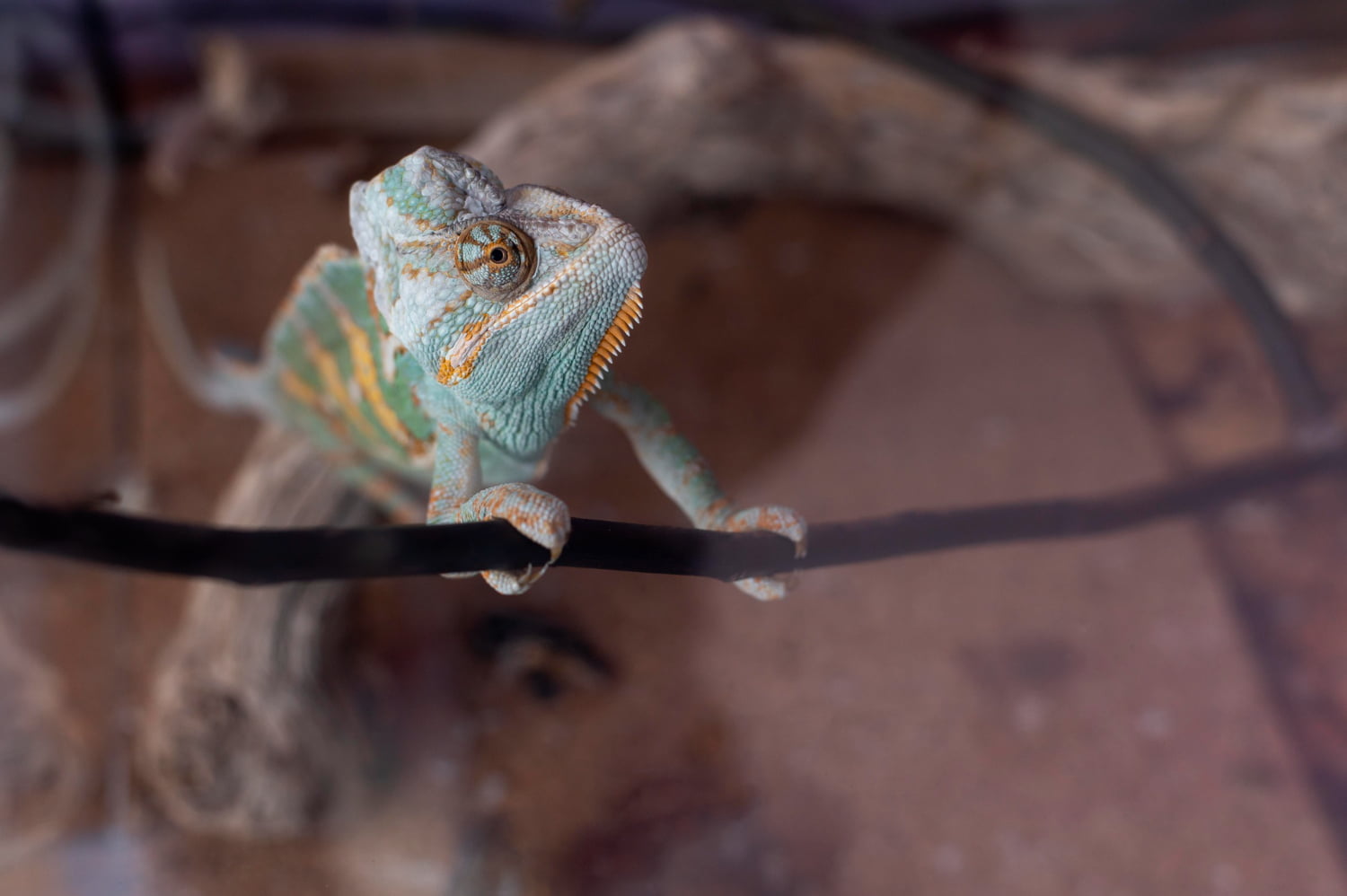Leopard geckos are among the most popular pet reptiles, known for their unique charm, ease of care, and distinctive spots. If you own or plan to own a leopard gecko, understanding what they can and cannot eat is crucial. A common question that arises is, “Can leopard geckos eat fruit?”
In this blog post, we will explore the dietary needs of leopard geckos, why they shouldn’t eat fruit, and how to provide them with a balanced diet.
Table of Contents
ToggleWhat is a Leopard Gecko’s Natural Diet?
Overview of a Leopard Gecko’s Diet in the Wild
In the wild, leopard geckos thrive in arid environments such as deserts and dry grasslands. Their diet primarily consists of insects, which provide the necessary nutrients for their survival. They hunt small insects like crickets, mealworms, and other invertebrates.
Their Insectivorous Nature
Leopard geckos are insectivores, meaning their diet consists almost exclusively of insects. Their bodies are adapted to process the proteins and fats found in these prey items, ensuring they receive the nutrients they need to stay healthy.
Replicating Their Natural Diet in Captivity
To keep your leopard gecko healthy in captivity, it’s essential to replicate their natural diet as closely as possible. This involves providing a variety of live insects and ensuring they are nutritionally balanced.
Can Leopard Geckos Eat Fruit?
No, leopard geckos cannot eat fruit. Their digestive systems are not designed to process fruits, and doing so can lead to health problems.
Digestive Limitations
Leopard geckos lack the necessary enzymes and gut flora to break down the complex sugars and fibers found in fruits. Feeding them fruit can result in digestive issues and nutritional imbalances.
Risks of Feeding Fruit to Leopard Geckos
Feeding fruit to leopard geckos can cause several health issues, including diarrhea, obesity, and other digestive problems. It’s best to stick to their natural insect-based diet to ensure they remain healthy.
Why Can’t Leopard Geckos Digest Fruit?
Anatomy and Digestive System of Leopard Geckos
Leopard geckos have a relatively simple digestive system designed for processing insects. They have a short digestive tract, which is efficient at breaking down protein and fat but not complex carbohydrates and fibers found in fruits.
Absence of a Cecum
Unlike herbivores, leopard geckos do not have a cecum, a pouch in the digestive tract that helps break down plant materials. Without a cecum, they cannot properly digest fruits and vegetables.
Difference Between Insectivores and Herbivores
Insectivores like leopard geckos have evolved to thrive on a diet of insects, while herbivores have specialized adaptations to process plant matter. Feeding fruit to an insectivore can disrupt their digestive system and lead to health problems.
Potential Risks of Feeding Fruit to Leopard Geckos
Digestive Issues
Feeding fruit to leopard geckos can cause digestive problems such as diarrhea and bloating. Their bodies are not equipped to handle the sugars and fibers found in fruits, leading to gastrointestinal distress.
Nutritional Imbalances
Fruits lack the essential nutrients that leopard geckos need, such as protein and specific vitamins and minerals. Feeding fruit can result in nutritional deficiencies and health issues over time.
Obesity and Related Issues
Fruits are high in sugars, which can contribute to obesity in leopard geckos. Obesity can lead to a range of health problems, including liver disease and decreased mobility.
What Should Leopard Geckos Eat?
Primary Diet
Leopard geckos should be fed a primary diet of live insects. Some suitable options include:
- Crickets: A staple in a leopard gecko’s diet, providing essential protein.
- Mealworms: Another common food source, though they should be fed in moderation due to their high-fat content.
- Waxworms and Butterworms: These should be given as occasional treats due to their high-fat content.
Vitamins and Minerals
To ensure your leopard gecko receives all the necessary nutrients, it’s important to supplement their diet with vitamins and minerals. This can be done through:
- Dusting food with calcium and vitamin D3 powder to support bone health.
- Gut loading insects by feeding them nutritious foods before offering them to your gecko.
How to Properly Feed Your Leopard Gecko
Feeding Frequency
The feeding frequency for leopard geckos varies based on their age:
- Babies should be fed every day.
- Juveniles can be fed every other day.
- Adults should be fed every two to three days.
Food Preparation
It’s important to feed live insects to your leopard gecko, as this mimics their natural hunting behavior. Avoid pre-packaged or dried insects, as they may lack essential nutrients.
Hydration
Always provide fresh water for your leopard gecko. Use a shallow dish to avoid the risk of drowning and ensure the water is clean and free from contaminants.
Common Misconceptions about Leopard Gecko Diets
Misconception 1: Leopard Geckos Can Eat Fruits and Vegetables
Leopard geckos are strict insectivores and cannot digest fruits and vegetables. Feeding them such items can cause digestive issues and nutritional imbalances.
Misconception 2: It’s Okay to Feed Wild-Caught Insects
Feeding wild-caught insects to your leopard gecko is risky, as they may carry parasites or pesticides. Always opt for commercially bred insects to ensure safety.
Misconception 3: All Types of Worms Are Safe for Daily Consumption
Not all worms are suitable for daily feeding. Waxworms and butterworms are high in fat and should only be given as occasional treats to prevent obesity.
Gut Loading and Dusting Explained
Gut Loading
Gut loading involves feeding nutritious foods to insects before offering them to your leopard gecko. This ensures the insects are packed with essential nutrients that benefit your gecko.
To properly gut load insects, feed them a variety of fruits, vegetables, and commercial gut-loading diets for at least 24 hours before feeding them to your gecko.
Dusting
Dusting insects with supplements ensures your leopard gecko receives essential vitamins and minerals. Use a calcium and vitamin D3 powder regularly and follow the recommended dusting frequency for each supplement.
Conclusion
Understanding the dietary needs of your leopard gecko is crucial for their health and well-being. By sticking to a diet of live insects and avoiding fruits and vegetables, you can ensure your pet thrives in captivity.
For more information on leopard gecko care or personalized advice, consult a vet or explore our comprehensive guides on reptile care. Your gecko will thank you for it!
FAQs
What Can I Feed My Leopard Gecko?
Stick to a diet of live insects such as crickets, mealworms, and occasional treats like waxworms and butterworms. Ensure you gut load and dust the insects for optimal nutrition.
Can a Leopard Gecko Eat Lettuce?
No, leopard geckos cannot eat lettuce. Their bodies cannot digest plant matter, and lettuce lacks the necessary nutrients they need.
Do Geckos Eat Oranges?
No, geckos should not eat oranges or any other fruits. Their digestive systems are not equipped to handle the sugars and fibers found in fruits.
Are Apples Toxic to Leopard Geckos?
While apples are not toxic, leopard geckos cannot digest them properly. Feeding apples can cause digestive issues and nutritional imbalances.




